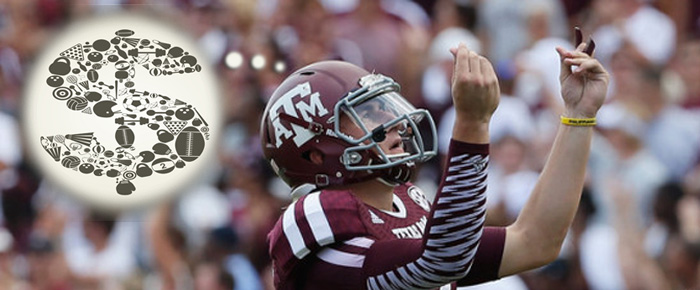
By Flint Wheeler
It wasn’t always my opinion, but, today, in the new world of college athletics, the athletes deserved to be paid.
If you would have asked me a few years ago if college athletes should be paid the answer would have been no, absolutely not. It didn’t seem ethical. It would be paying amateurs for something they choose to take part in.
Anyways, they already have scholarships. Their room and board is paid for, books are paid for and they even receive a monthly stipend. If being an athlete is such a burden, why are you doing it? Go be a regular student and join a club. Put more effort into your schooling and become an educator, a doctor, a lawyer, anything. Abide by the rules and you will reap the benefits.
But, I believe, while all those reasons are legitimate, they ignore what college athletics have become.
Today, the entire landscape of college sports is changing right before our eyes. Conference realignment has become a mad dash for money and profile. While athletes are selling jerseys and receiving cars, agents continue to infiltrate college campuses and off-season workouts (Miami, anyone?). Parents are allegedly selling their kids during recruitment. Money is shaping college athletics today; it is at the root of all NCAA issues.
Players feel they deserve to be paid, so coaches and boosters feel they must meet the player’s demands because of pressure from the athletic departments to succeed. College athletics today has become an immoral world. One in which it seems almost everyone is cheating.
With the constant criticism of the NCAA and its president Mark Emmert in recent months, paying the players is a topic of discussion again, and it may solve many of the issues.
But how does the NCAA pay the players and regulate who gets paid?
The NCAA signed a contract with CBS/Turner Television that will pay $10.8 billion (yes, billion) from 2011-2024 to broadcast all of March Madness. Furthermore, ESPN is paying the BCS $500 million a year to broadcast games. Take a percentage of this money, an amount so large it’s actually hard to comprehend, and use it to pay the athletes. How much a player does receive would be the school’s decision, most likely incentive based.
Without the players, there is no billion-dollar television contract. Take, say 20%, of the combined $11.3 billion and the NCAA is left with roughly $2.6 billion to pay the athletes. That is all money generated by the players. Not money the students are paying in their tuition, not a “student” stipend used to pay athletes. It is a simple solution and the NCAA avoids a PR nightmare.
Who to pay is the next step and the answer is easy, the athletes who generate the money: football and basketball. With no disrespect to volleyball, soccer, baseball, softball, and other sports, basketball and football simply generate the money. Everything isn’t always fair in the world of economics. It’s capitalism. It’s America.
Football and basketball players are superstars just like professional athletes. No longer is it 1980. Athletes are all over the country. You think more people throughout the nation know Manti Te’o and Trey Burke, or George Hill and Gerald Wallace, who will make a combined $17.8 million this year. The media has created a world where college athletes receive almost as much of the limelight as professionals. This is the cold-hard truth and it’s time to adapt to the rapid evolution of college sports.
College athletics have become the foundation of some colleges and universities. Alabama is better known for its football team than its law school. People associate Indiana University with basketball, not their business school. Sports have become a reason for the regular student to attend a particular school.
Regardless of what you want to believe, sports have a special place in American society. Sports, and all those involved, are put on a pedestal.
When it’s all said and done the fact remains college athletes are bringing in billions of dollars to the NCAA. In essence, college athletes are employees of their school, but with no compensation.
Does that seem fair? No. Pay the athletes. It’s only ethical.










































